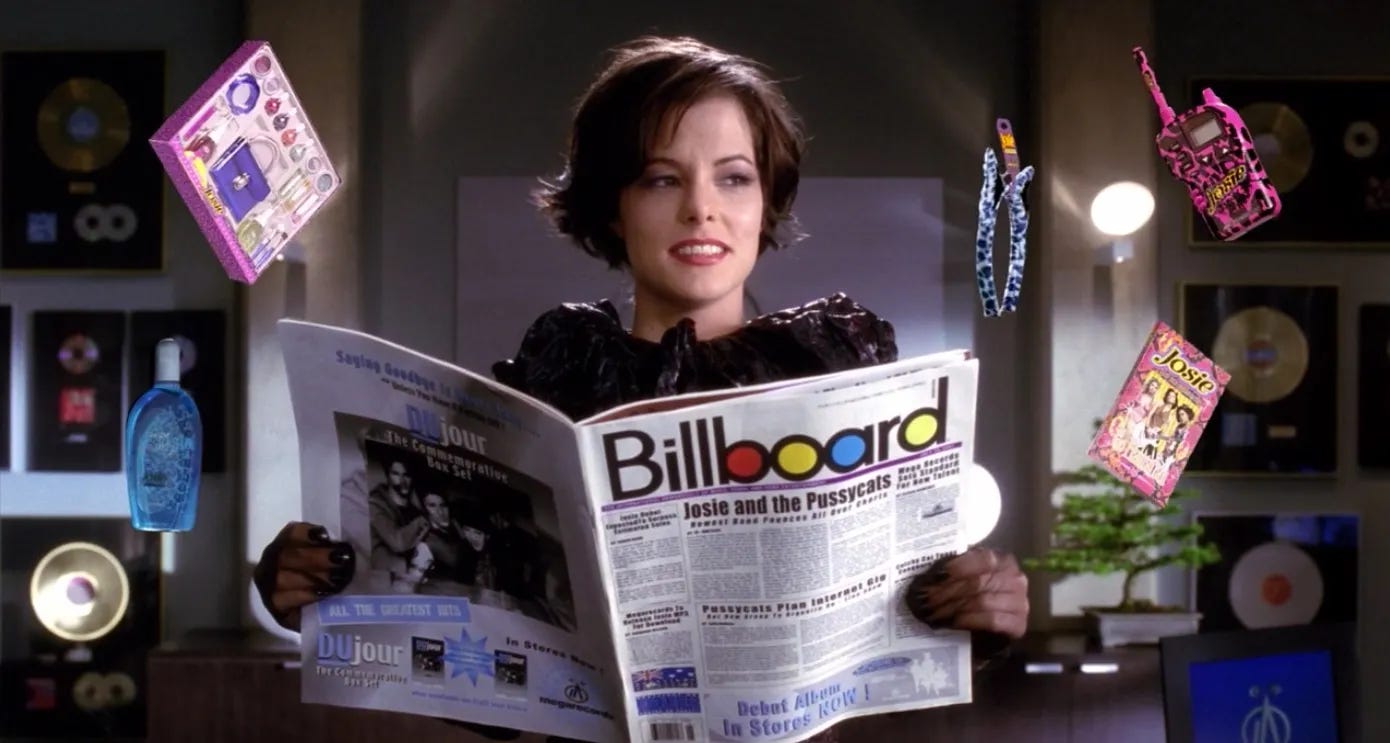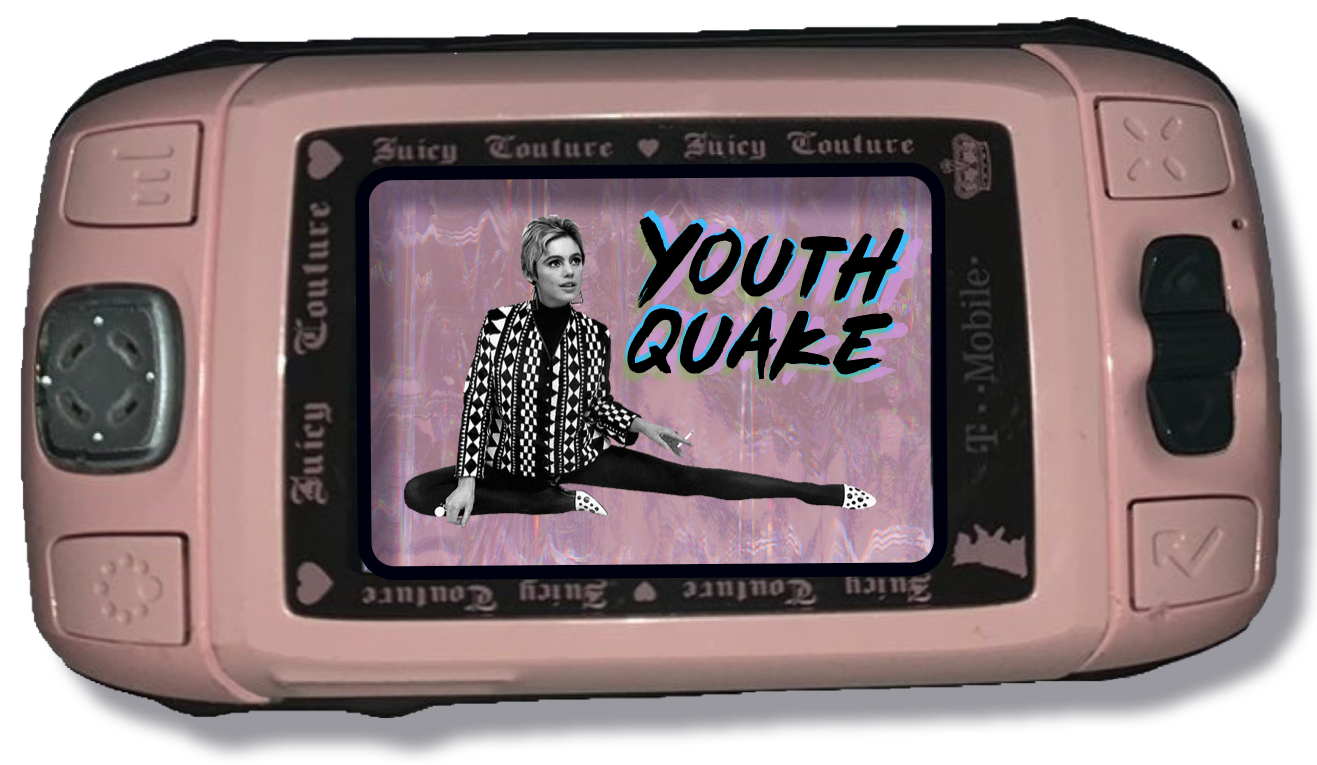Let's Talk About Travis Scott's Astroworld
Pop Culture Cold Brew on the Corporate Inculpability in Our Data-Driven World
Youthquake is a newsletter with Pop Culture ∙ Commentary ∙ Critique
Wednesday’s Pop Culture Cold Brew is a collection of pop culture adjacency news that’s sincerely piqued our interest, only without the celebrity worship culture. We’re sharing entertainment news, like new film teasers/trailers, directly from our inbox to yours. Additionally, we’re also sharing pieces on social commentaries like our thoughts on the Met Ball and Latina/e/x Heritage Month; get into it below.
In the aftermath of the Astroworld tragedies, avid concertgoers and festival admirers are feeling rightfully distressing. As a person whose haven is concerts, it’s particularly gut-wrenching as the news was traumatizingly unfolding. Ten people died, and more than 300 were injured, at a packed event that drew 50,000 people to NRG Park in Houston, Texas. During an already heated debate over uncertainty with larger-scale touring during an ongoing pandemic, the senseless turn of events has many unanswered questions over crowd-control procedures or lack thereof. Helmed by Houston native Travis Scott, the rapper offers to pay for funeral expenses, and he’s also notably joined up with the therapy app BetterHelp to provide a free month of therapy to those affected by Astroworld— yet, interestingly enough, the fine print is always worth a read.
The joint partnership with BetterHelp seemingly did damage control by a marketing ploy with a company with shady archival formalities similar to ̶M̶e̶t̶a̶ Facebook (selling data to third parties). Worst of all was the seeming lack of remorse or accountability from those responsible, causing lots of finger-pointing with still no resolution as the Houston police currently investigate. Historically, Travis Scott is known for his raging concerts that not only supported but encouraged an apathetic mosh pit etiquette.
Professedly, it sounds like an oxymoron, yet there are unofficial concerts rules amongst most fans, stans, and anywhere you fall on the scope. The pit/general admission works in mysterious and frenetic ways. The most crucial rule is if someone around you has fallen, help pick them back up— the general Golden Rule is: if you see something troubling, do what you can. Not everyone in the pit may be aware or ready for such kinetic energy that’s sudden, like a jolt, so becoming scenically mindful of your surrounding areas is vital when attending concerts/music festivals.
Crowd safety is concert logistics 101; this was wildly evident during Monterey Pop, even Woodstock. With a lack of crowd control procedures, sanitation, and proper resources like food vendors/water stations. Then came the senseless disaster of Altamont with a gaggle of Hell’s Angels as security instead of appropriate crews caused more harm than any good. Let’s not forget the chaotic Woodstock ’99 festival; these are just a few historical tragedies at concerts and festivals. The reputation proceeding those then rising music festivals is why local governments fastened permits for public gatherings in America.
However, the popularity and profitability of festivals progressed throughout the years. Now, as the desire for large-scale events grows amidst the pandemic, it’s extremely questionable whether organizers and officials took shortcuts as safety protocols were overlooked, such as keeping the Astroworld crowd’s density under control. The optics of lack of accountability of the mass casualty turn of events is viewed as indifferent and a reminder that sponsor eager celebrities continuously profit from fans. Entertainers have the efficiency of high-powered corporations backing them or convenient connections and resources at their disposal; regular folks and fans find ways to make their devotion tangible when it comes to concerts.
Yet even with the seemingly ominous side of influencer and celebrity worship culture, there’s a hidden enemy that lies within the music industry’s seedy underbelly, and that’s the corporations who stand to make the most profit. If the perfectly meta satire of consumerism Josie and the Pussycats taught us anything, teen culture is a highly profit-driven grift. Truly, pop culture itself wouldn’t exist without the fans, especially the younger dedicated and uberly passionate stans. Being near the beloved favorites that we see as deities or, more is why expenses can be limitless (frankly, as a fangirl, I speak from personal experience pre-covid, of course). As fans, we seem to forget that celebrities are also objects because they have a brand or empire to maintain, except when celebrities make mistakes that cause harm— where is the accountability? Just as celebrities want us to remember that they’re human, fans are also people living lives through a completely different lens of reality, albeit sometimes with a hazy vignette of entitled delusion (I’ve met a few in different fan bases).
Conversely, this situation mirrors the consumeristic dystopia that Josie and the Pussycats’ satirized back in 2001. Look at the current Staples Arena— actually, now embarrassingly will be renamed the Crypto.com Arena, yet that’s how the status quo of how power structured institutions function worldwide via corporate greed. The established institutions are activated by capitalism and fueled by hierarchies of Trickle-down social economics with influence as a social currency. The leechlike parasite attaches to the hosts, otherwise known as the lucrative world of teen culture— just as generations before.
Our post-Josie and the Pussycat world is ignited by data-driven advertising as institutive corporations and LLC’s further implant our lives with this can’t live without neighborly approach to commercialism— this is a perfected system for uncritical thinking and conformism. Not to sound like a complete conspiracy theorist like my fellow Texan Dale Gribble, from King of the Hill, but the ongoing horrifying Orwellian factor of surveillance being used against us like Amazon selling recognition technology to local and federal law enforcement. What’s more, is everyday brands on Twitter clutter our timelines with an unreasonably friendly approach and interaction. At the same time, under the guise of somehow being equals while spoonfeeding the mass consumptive world, we’re familiar with targeted ads. Decades later, the then misunderstood by critics resulted in making Josie and the Pussycats a cult classic. The film remains unmatched by foreseeably nailing the corporate sponsorship of Times Square that still infiltrates the market and our pop culture lexicon. Sadly, until the involved organizers of those involved step up to the plate or if elected officials amplify the need for nationally placed crowd control regulations, it’s business as usual in our consumer-driven world. Enforcing a sudden need to adapt to an alarming new normal, a further reminder that a collective effort of community care is essential as corporations and beyond continue to show their loyalty is revenue-driven.
⚡ Instead of exploiting the frankly oversaturated celebrity culture and the American obsession with fame, we’re contemplating why can’t we get enough and why we love not minding our own business.
The Gucci Family issues a blistering statement about Ridley Scott’s House of Gucci. It notes the following, although there is no word from the Gucci Family why Jared Leto desperately tries to be Daniel Day-Lewis but fails to be even remotely fascinating with his windbag approach of method acting. How groundbreaking.
The production of the film did not bother to consult the heirs before describing Aldo Gucci — president of the company for 30 years [played by Al Pacino in the film] — and the members of the Gucci family as thugs, ignorant and insensitive to the world around them. A tone and an attitude to the protagonists of the well-known events that never belonged to them. This is extremely painful from a human point of view and an insult to the legacy on which the brand is built today.
The artist, formally known as Yeezy, shared a TMZ story entitled, “God Will Bring Kim and Him Back Together, Inspire Millions.” Usually, I ignore anything related to this family, but the ARod level of delusion met with emotional insensitivity and lack of public accountability is multi-levels of harrowing fascination.
Barbados has officially left the monarchy behind, dropping The Queen and setting a new supreme in her place— Rihanna is, of course, worthy for such a task which I say in jest. Still, she’s been named a National Hero in her homeland, which is such beautiful news.
Angelic songstress Ari Lennox was arrested in Amsterdam; the singer posted her experience via Twitter about being “racially profiled” before tweeting she was getting arrested. Little is known other than responsive deflections, and reductions of an emotional woman are uncontrollable, reminiscent of the inferring anger narrative surrounding A$AP Rocky’s targeted incident in Sweden— a cruel and unjust reminder that systemic racism is worldwide.
Here are the latest teasers and trailers for your unadulterated pleasure.
🎥 HBO’s Euphoria
🎥 Brian Wilson: Long Promised Road
This beautifully intimate documentary featuring a musical living legend was a favorite during the Tribeca Film Festival is available to rent/On Demand now.
🎥 HBO’s Music Box: DMX: Don’t Try to Understand
Music Box: DMX: Don’t Try to Understand focuses on a year in the life of Earl Simmons, whom we know as DMX. The doc follows his release from prison in early 2019 as he attempts to rebuild his music career and reconnect with family— and fans. Unfolding in a cinéma vérité style and with unfettered access, the film bears witness to a man searching for reinvention and redemption, striving to stay true to himself while reestablishing his role as a father, an artist, and a hip-hop icon.
Now for the teases.
The Weeknd is currently developing, co-writing, and starring in a joint creation with Euphoria’s Sam Levinson. Along with creative producer Reza Fahim, the project will be titled The Idol— rounding out the cast is Troye Sivan and Lily-Rose Depp.
Studio Ghibli captivated hearts globally with films like Spirited Away, Princess Mononoke, Ponyo, Kiki’s Delivery Service, and more is coming out of retirement; for one more film. After having directed eleven featured animated films in thirty-four years, Miyazaki spoke exclusively with the New York Times Magazine— a rarity in and of itself, it’s also the first with an English outlet since 2014. Why? “Because I wanted to,” he said— I know that’s right.
Hayley Williams of Paramore announced that an album is on the way and set for a 2022 release.
While I’ve just recently have been getting into Phoebe Bridgers to fill the Snail Mail void, alas, after three long years, Snail Mail returns with new music and news of a new album entitled Valentine— arriving in February 2022.
The post-Holiday blues are here, and it’s just the beginning of the season, so I hope everyone is taking care. Sam and I will be assembling our first joint film list for the seasonal occasion, and we collectively agreed on a niche aesthetic for such an occasion. Additionally, I’ll have part deux of my non-Christmas Christmas films.
Lastly, a friendly reminder that I’ve been teasing and mentioning the possibility of another upcoming Youthquake prize; a Star-Crossed vinyl and other goodies by way of a Youthquake care package— this will be exclusively for subscribed readers only. The winner will be selected randomly and notified on December 4th; good luck to all!













